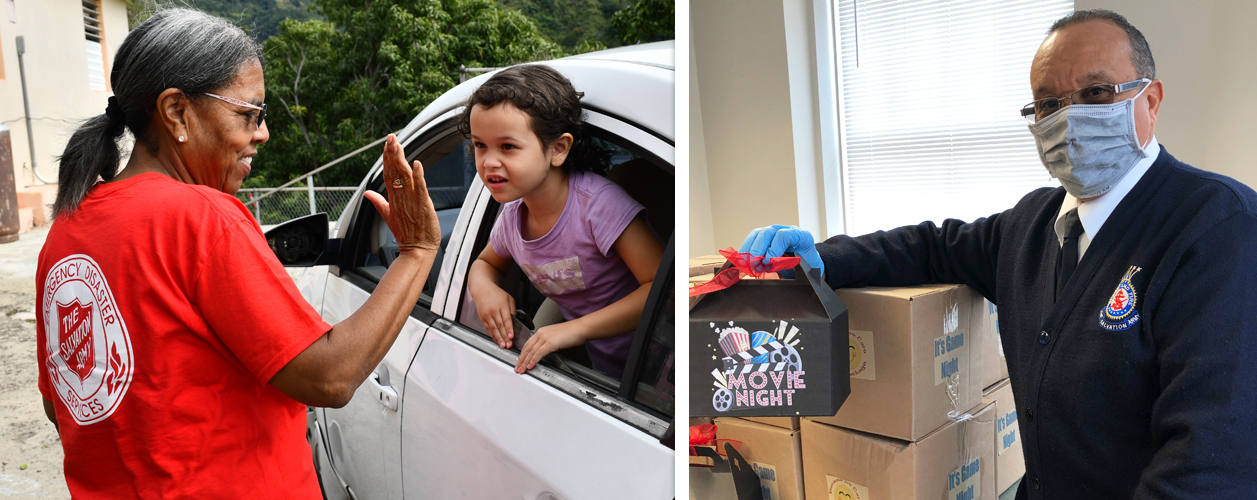Mayra and Elizur Vasquez: The Army and Us
by Hugo Bravo

Majors Mayra and Elizur Vasquez share some of the memories and lessons they’ve learned as officers of the Salvation Army’s Boston Central Hispanic Corps in Roxbury, Mass.
It started with a march. While living in New York, we were invited to see the Salvation Army march in Queens. There, we witnessed the love that Salvationists have for the community. We agreed that this was also how we were raised as children. We visited the sick, gave food to the poor, and did outdoor ministry, just as The Salvation Army does today. Seeing that march made us want to become more involved in our local Queens corps, which led to us becoming soldiers.
Our prayers were answered with a building. As corps officers in Boston, our congregation grew in number. There were discussions to combine us with another corps, but everyone knew that we wouldn’t fit; we had too many people. One day, we learned that there was an empty building that used to house the Roxbury Corps, which had moved to the newly built Ray & Joan Kroc Corps Community Center in Boston. Fighting to get the old Roxbury Corps building was like having our own Battle of Jericho. But finally, we received the building. We knew God had heard our prayers. Now with our ministry in Roxbury, our corps is growing and serving in ways we never imagined.
Show God’s love, without a second thought. A bilingual corps is not much different than any other corps. A person who can only speak Spanish comes into the Boston Central Hispanic Corps Community Center gets the same treatment as a person who speaks only English. No matter their language, they are part of our family as soon as they walk through the door.
Leaders of a new type of ministry. During COVID-19, we’ve been available every day. We’ve worked harder than ever with the Massachusetts Food Bank. They have helped us provide for the people we serve. To say that our corps ministry has been involved throughout all this would be an understatement. We live about 25 minutes away from the corps, but our members and volunteers are on call the minute we need them. Their fearlessness and unity is inspiring. They are always ready to put on gloves and masks, pick up donations, and even deliver the food door– to–door. Just as they have adapted, we have also had to adapt. Despite the fact that we cannot be in church on Sundays, we learned to hold virtual services on Facebook, Zoom, Instagram, or any way we can. We are now up to five online services per week, plus our regular Sunday service.
Pastors never really retire. Though we didn’t grow up in The Salvation Army, we have been in the service of God since we were children. That will not change even in retirement. We know that God will still find ways to use us for His mission. But the most difficult thing about retiring will be leaving the day-to-day work of serving the community. It is hard to say goodbye after 30 years of service, especially at a time like this, when the work of The Salvation Army is needed more than ever. At the same time, we are leaving the corps in good, capable hands. For that, we are grateful. God always chooses leaders who know how to carry on His work.
Interview by Hugo Bravo

